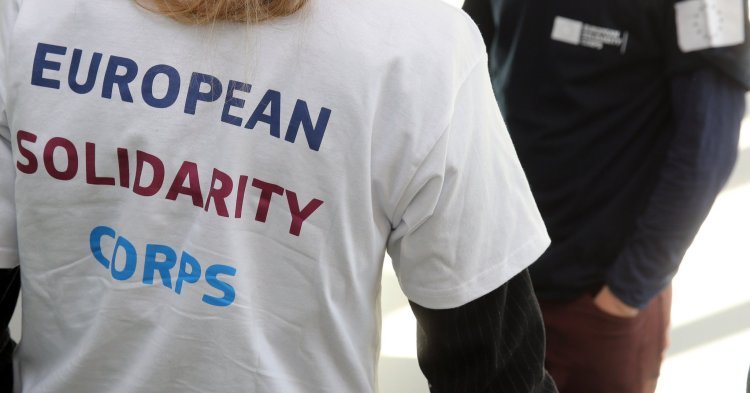Volunteering and solidarity as political fields
Solidarity is a core value underpinning federalism. A value that shapes not only the relations between countries within the European Union but also a value that shapes European citizenship and the feeling of European identity. A new European programme targeted at young people that embodies this value is a necessary and welcome step in the context of fraying social fabric at all levels. In addition to the the very concrete investment that it represents, the legal basis for the ESC puts solidarity and volunteering on the political agenda as independent political fields. This is a more than symbolic move when the Future of Europe debate is triggering discussion about the underlying principles of our Union.
An investment for young people, threatening youth investment?
Since the very first announcement of the ESC, the youth sector has called for “fresh money” to be invested in the European Solidarity Corps. The legal basis shows that several financial instruments will be used: Erasmus+, the European Social Fund, LIFE programme, etc., in addition to a substantial amount of unallocated margins of the EU budget. This budgetary arrangement calls for several remarks.
The Erasmus+ programme should have been safeguarded entirely. The additional 50 millions euros allocated to the programme for 2018-2020 are being allocated to the ESC instead. As we are entering the negotiation period for the next Multiannual Financial Framework (MFF) and for the future of all European programmes, it is not the most positive message for young people that the funding directly and clearly allocated to them is somehow shifted to a new initiative. It is important to recall that current youth projects such as the European Voluntary Service, Youth Exchanges, Mobility of Youth Workers and Strategic Partnerships between youth organisations are suffering of a clear underfunding shown by a demand that far exceeds the supply. Nevertheless, this new programme shows a strong will to mainstream youth in different EU political fields and programmes. Youth policy cannot and shouldn’t be envisioned in its own silo but in a cross-sectoral approach. The ESC budgetary mechanisms offer innovative and interesting perspective in that regard.
The importance of the investment in the ESC should also be put in perspective: the programme aims to reach out to 100 000 young people until 2020, or approximately 0,1% of all young people in Europe. Again, this raises a number of questions left unanswered by the ESC promoters. Will we be able to achieve a systemic impact on solidarity and European identity with this level of investment? Will we be able to avoid the “elite bias” already observed in Erasmus+? Due to the limited number of opportunities and a high demand for such experiences, young people with higher qualifications have better access to these programmes, leaving young people with fewer opportunities...with even less opportunities.
An opportunity for innovative policy-making and co-management?
The European Solidarity Corps is a programme directed at young people. Its implementation will involve not only NGOs but also the public and private sectors which will be able to apply for funding and run ESC projects. A European programme with young people at its heart and NGOs at the centre of its management calls for innovative policy making. It is a unique opportunity to strongly involve all the beneficiaries in its development through more in-depth consultation in order to ensure the programme is adjusted to their reality and needs.
But it is also the opportunity to design new methods for managing all EU programmes. The ESC opens the door for real co-management of EU programmes through the involvement of project beneficiaries in the implementation and evaluation of the programme alongside the institutions.
From an out-of-the-blue declaration during the State of the EU speech in 2016 to a fully fleshed out new European programme in May 2017, the European Solidarity Corps has raised lot of hope and political attention. As Young European Federalists, we remain cautious, hoping for a real paradigm shift from the European institutions in their approach to youth, solidarity and volunteering.

Follow the comments: |
|
